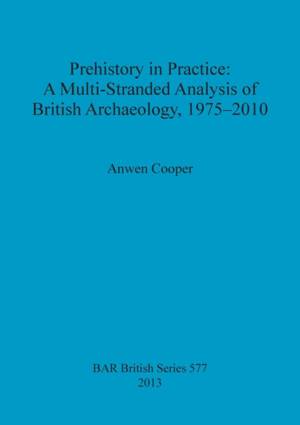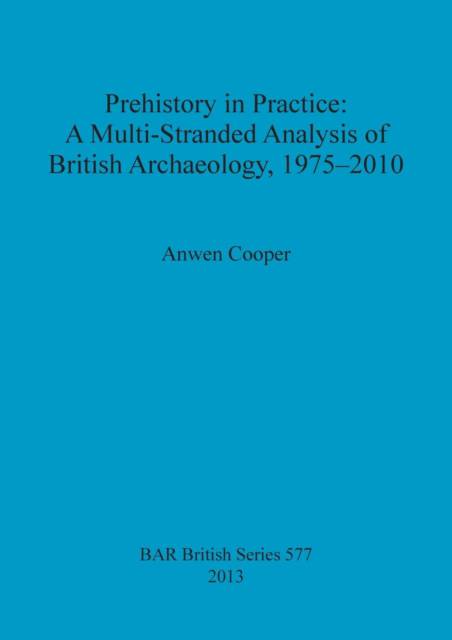
- Afhalen na 1 uur in een winkel met voorraad
- Gratis thuislevering in België
- Ruim aanbod met 7 miljoen producten
- Afhalen na 1 uur in een winkel met voorraad
- Gratis thuislevering in België
- Ruim aanbod met 7 miljoen producten
Omschrijving
This study examines developments in British archaeology over the last 30 years or so (between 1975-2010), focusing in particular on transformations in prehistoric research. Ultimately it seeks to foreground the extent to which recent historical developments (at all levels of the discipline and in various working contexts) are implicated in contemporary research practices. Advocating the need for taking a multi-stranded and interdisciplinary approach, the author consulted a range of sources - digital archives, documentary and oral material - and draws on ideas from archaeology, sociology, anthropology and oral history. Through a detailed analysis of a leading disciplinary newsletter, key concerns are highlighted which have shaped archaeological practice over this period, and how particular roles and relationships have been defined and developed. By examining records and primary research outcomes of British prehistoric fieldwork, the writer develops a thorough understanding of how both data production and accounts of British prehistory have transformed. Based on evidence from 'life-history' interviews undertaken with prehistorians across the discipline, themes are explored that connect the diverse experiences of these practitioners: the notions that archaeology has undergone a process of 'professionalisation' over this period, and that it is chronically (and indeed increasingly) 'fragmented' socially. The author considers not only the varied ways in which British prehistorians have understood these issues, but also how such beliefs actually operate to shape research practices.
Specificaties
Betrokkenen
- Auteur(s):
- Uitgeverij:
Inhoud
- Aantal bladzijden:
- 166
- Taal:
- Engels
- Reeks:
- Reeksnummer:
- nr. 577
Eigenschappen
- Productcode (EAN):
- 9781407310862
- Verschijningsdatum:
- 13/02/2013
- Uitvoering:
- Paperback
- Formaat:
- Trade paperback (VS)
- Afmetingen:
- 210 mm x 297 mm
- Gewicht:
- 580 g

Alleen bij Standaard Boekhandel
Beoordelingen
We publiceren alleen reviews die voldoen aan de voorwaarden voor reviews. Bekijk onze voorwaarden voor reviews.












